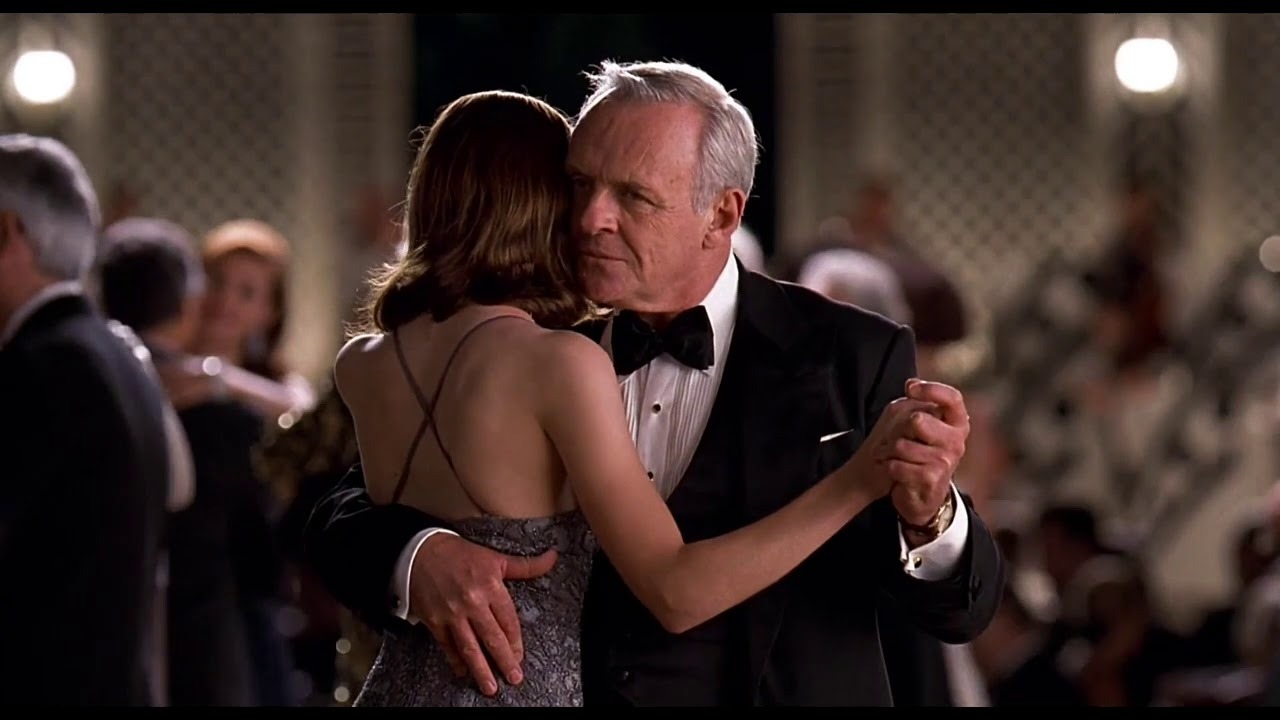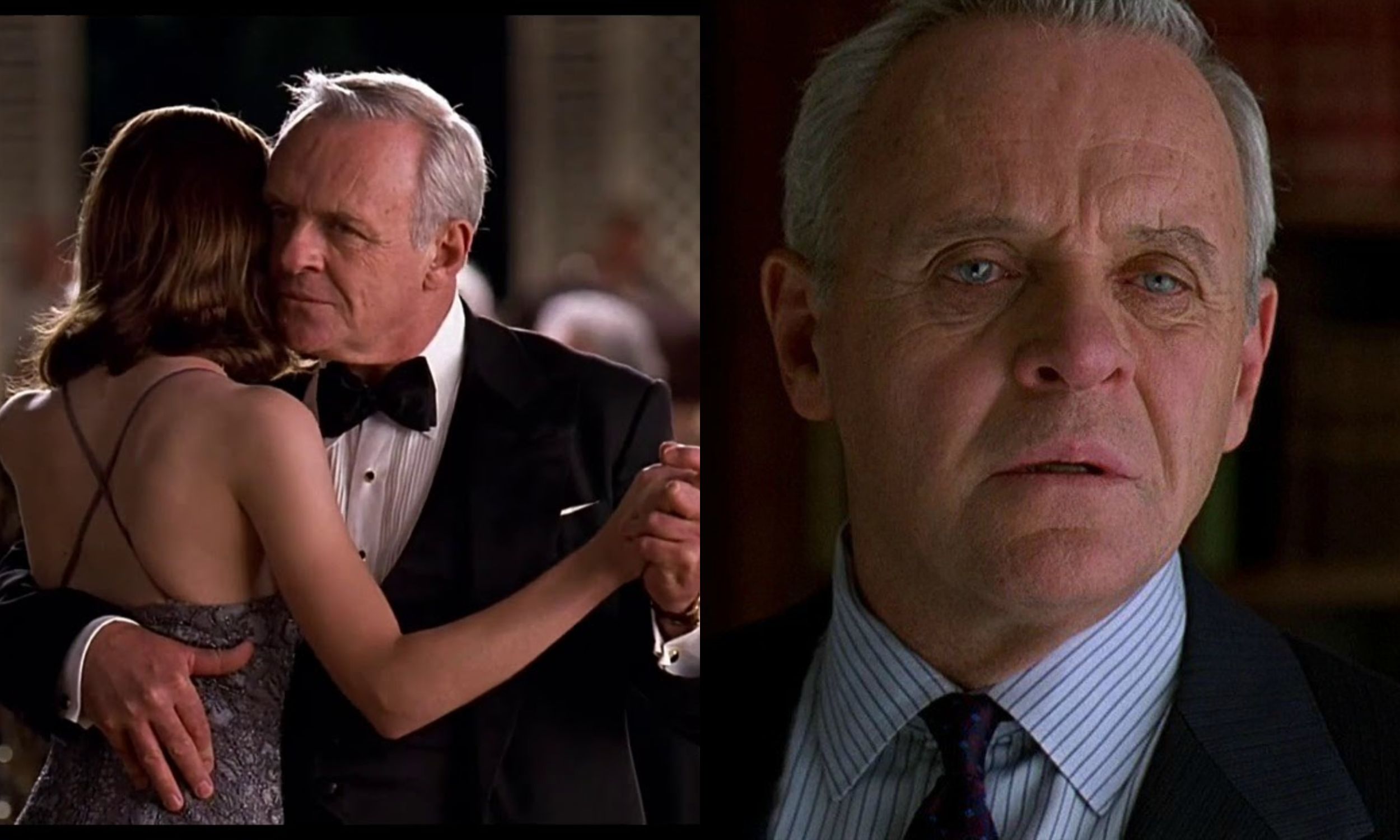Many recognize the famous viral scene where Brad Pitt gets hit by cars in a bustling New York City intersection, yet few realize it’s a moment from the film Meet Joe Black.
Released in 1998, this three-hour exploration of life, death, and even peanut butter garnered immense pre-release anticipation.
At the time, Pitt reigned as Hollywood’s leading heartthrob, director Martin Brest had recently helmed the acclaimed Scent of a Woman (1992), and a supporting cast featuring Anthony Hopkins, Claire Forlani, and Marcia Gay Harden further heightened expectations.

Despite this star power, audience reactions were subdued, and critical reception was lukewarm. Some attribute its box office returns to Star Wars enthusiasts who purchased tickets just to catch the first trailer for The Phantom Menace, leaving before the feature started. Many still associate the film with those bulky two-tape Blockbuster rentals, even if its storyline remains a blur.
As years have passed, Meet Joe Black has morphed into a source of memes more than cinematic discussion. However, those willing to endure its extended runtime may find its conclusion surprisingly moving.
Before continuing, readers unfamiliar with the movie and wishing to avoid spoilers should note this article delves into its complex finale.
Revisiting the Plot of Meet Joe Black
Anthony Hopkins portrays Bill Parrish, a billionaire haunted by an otherworldly voice whispering “Yes” as his 65th birthday approaches.
His daughter Allison, played by Marcia Gay Harden, meticulously organizes a grand celebration, while Bill considers merging his media company with a conglomerate led by his cutthroat associate, Drew (Jake Webber).
Complicating matters, Drew is engaged to Bill’s younger daughter, Susan (Claire Forlani), though Bill harbors doubts and advises Susan to remain open to other possibilities.
A chance encounter changes everything. Susan meets a charming stranger (Brad Pitt) in a coffee shop, but their flirtation is tragically cut short when he is struck by a car.
Death seizes the man’s body and approaches Bill with a proposition: a delay in Bill’s demise in exchange for a guided introduction to human life.
As “Joe Black,” Death shadows Bill, attends board meetings, shares family meals, and savors earthly delights, particularly peanut butter.
Joe’s Encounters With Mortality and Love
Joe’s immersion in human experiences includes an unexpected attraction to Susan. She struggles to reconcile this man with the mysterious presence now intertwined with her father’s life.
Visits to her hospital workplace and a friendship with a terminally ill Jamaican woman further deepen Joe’s understanding of humanity, though Pitt’s attempt at a Jamaican accent drew mixed reactions.
Susan, entranced by Joe, leaves Drew, much to his anger, especially since Joe’s influence over Bill grows. Bill, meanwhile, rethinks the merger, wary of its potential to compromise journalistic integrity.
An unintended leak by Quince, Bill’s son-in-law, allows Drew to orchestrate a hostile corporate takeover, forcing Bill into early retirement. As Bill grapples with this betrayal, he also faces the prospect of losing Susan to Joe, who intends to bring her to the afterlife.
The Film’s Climactic Moments
On his birthday, Bill accepts his fate but firmly opposes Joe’s plan to take Susan. While Allison acknowledges her father’s favoritism toward Susan, she expresses gratitude for the love she received.
At the party, Quince confesses his role in the corporate plot. Guided by Bill, the board reverses its decision, reinstating Bill and terminating Drew. Joe, now more attuned to human emotions, agrees to leave Susan behind.
Susan’s Awareness and Joe’s Transformation
As Joe prepares to depart, Susan begins to suspect his true identity. Reflecting on their initial coffee shop meeting, she tells him she’s now the woman he once described searching for.
Their parting is bittersweet; as Joe and Bill walk away, Susan’s recognition of Joe’s dual nature remains ambiguous. When Joe returns in the original man’s body, he and Susan rekindle their connection, though the details of Bill’s fate remain uncertain.
Comparing Meet Joe Black and Death Takes a Holiday
A remake of the 1934 film Death Takes a Holiday, Meet Joe Black expands its predecessor’s narrative with a subplot about corporate intrigue.
While the original features Death as a prince and explores a world where no one dies during his visit, the remake reimagines these elements.
The most important divergence lies in the ending: whereas Meet Joe Black sees Death relinquish the borrowed body, allowing Susan to remain among the living, the earlier film concludes with Death and his love interest departing together.
Interpreting the Final Message
During his farewell speech, Bill reflects on a life of fulfillment, wishing others could experience similar contentment.
His poignant words, combined with the film’s exploration of love, legacy, and mortality, leave an enduring impression despite its lengthy runtime. The layered narrative invites audiences to ponder what it means to truly live, love, and let go.



